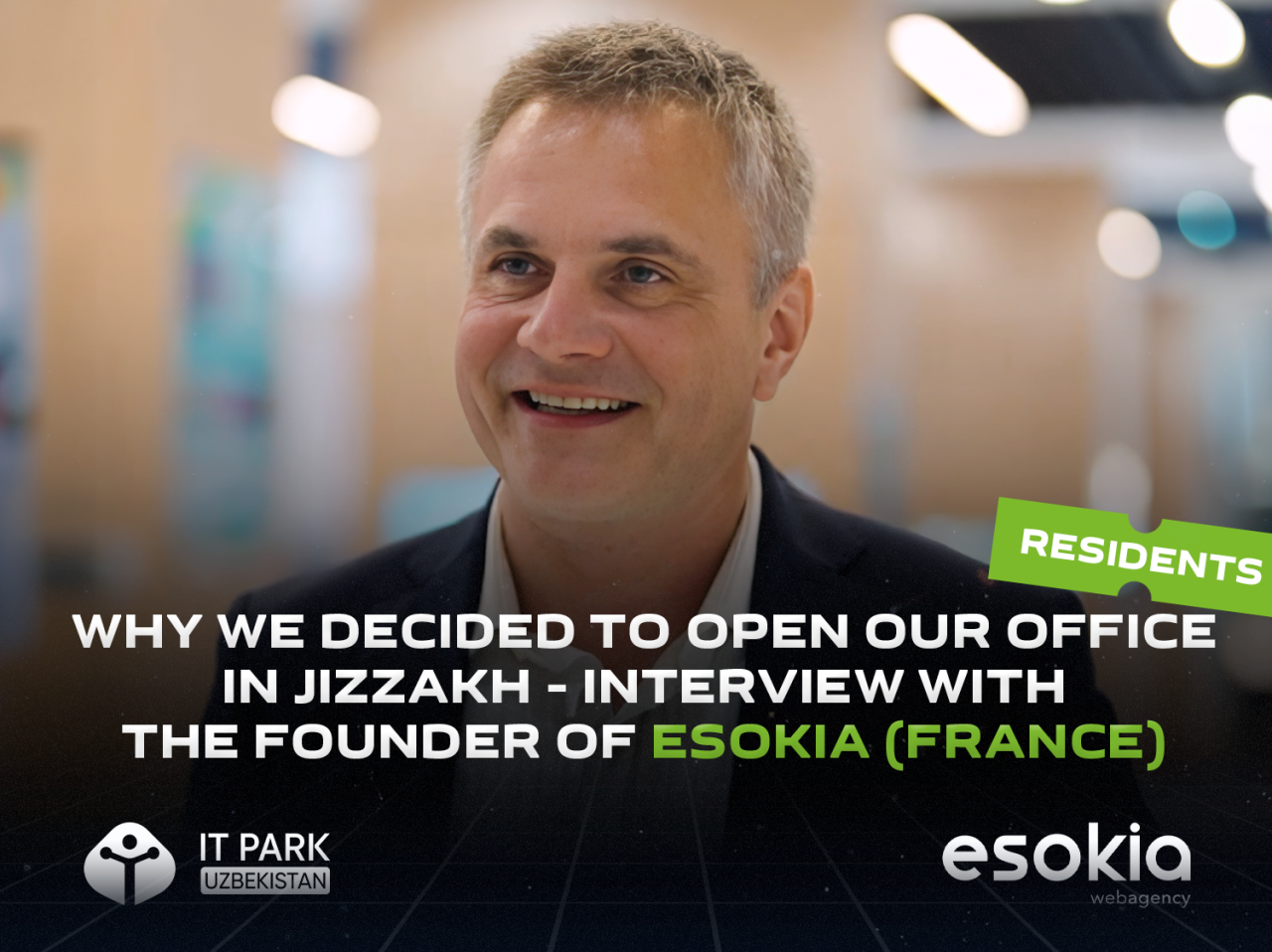
Why we decided to open our office in Jizzakh - Interview with the founder of Esokia (France)
Introducing a new section where we will provide information about the latest resident companies at IT Park. In a recent interview, Michel Demari, the founder of IT web agency Esokia, shared the company's exciting journey into Uzbekistan's burgeoning IT sector. Established 15 years ago as part of Maltem Group, Esokia has a team of over 100 employees located in France, Mauritius and Madagascar, and specializes in IT outsourcing, providing developers and undertaking projects primarily for the French market. Now, with plans to expand into Central Asia, Demari discussed the company's decision to open an office in Jizzakh.
Demari's journey began when he and his team were invited by IT Park for a curiosity trip. Despite initially having no plans to establish a company, the team was captivated by the country's potential, citing its rapid development, friendly people, and significant government investments in education and infrastructure.
Impressed by the talent pool, Esokia decided to open a company in Uzbekistan. The company, named EBM Digital, is set to operate in Jizzakh, a city near Tashkent, chosen for its appealing lifestyle and proximity to nature.
One of the factors influencing Esokia's decision was the support provided by IT Park, particularly through the Zero Risk program, designed to assist companies in their first year of operation. Demari expressed confidence in the program's effectiveness and praised IT Park's efforts to facilitate the establishment of foreign companies.
Esokia's approach involves not only providing IT services but also addressing the language barrier. Demari highlighted the importance of developing the English language skills of Uzbek developers, recognizing communication as a key challenge. Despite this, he expressed optimism about Uzbekistan's progress in this regard and emphasized the need to continue investing in language development.
Demari noted the bureaucratic process in France compared to the smoother experience in Uzbekistan. He praised IT Park for its welcoming program, a unique offering not encountered in other countries where Esokia has expanded its operations.
Looking ahead, Esokia aims to build a core team of 10-15 people by the end of 2024, gradually increasing to around 100 employees within three to five years. Demari sees Uzbekistan's potential to become a very attractive outsourcing destination, drawing parallels with the company's success in Mauritius, where they successfully developed an IT sector.
As Esokia navigates the early stages of its venture in Uzbekistan, Demari remains optimistic about the country's growth in the IT sector. He envisions a fruitful partnership that not only benefits Esokia but also contributes to the development of Uzbekistan's IT landscape.
In conclusion, Esokia's story in Uzbekistan mirrors the success of other international companies entering the country's evolving IT scene. With a commitment to collaboration, language development, and long-term growth, Esokia's venture serves as a testament to Uzbekistan's potential as a rising IT destination in Central Asia.
2024-01-03